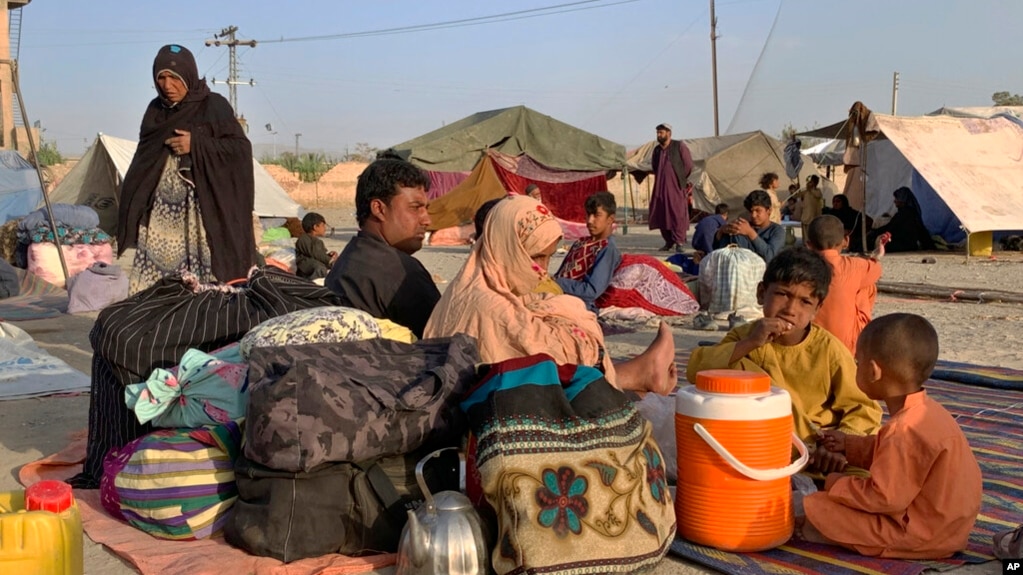
by Sara Nazir 18 July 2023
Since 1979, Pakistan has opened its door to millions of Afghan refugees even though Pakistan is neither a signatory to the United Nations Convention relating to the Status of Refugees (the Geneva Convention) nor the protocol relating to the Status of Refugees of 31 January 1967. Four million Afghan refugees, including 1.4 million unregistered and 0.8 million with Afghan citizen cards, have taken refuge in Pakistan in the last 40 years. Additionally, Pakistan welcomed 0.15 million Afghan asylum seekers after the United States’ withdrawal, while 50,000 (mostly Hazaras) entered illegally. Out of these, approximately 55,000 are still present in Pakistan.
There are about 54 Afghan Refugee Camps operational in Pakistan. Out of which, 43 camps are located in the Khyber Pakhtunkhwa province of Pakistan. About 68% of Afghan refugees live in urban areas, while only 32% live in camps relying on national public services. Despite several socio-economic and security challenges, Afghan refugees enjoy health, education, business, and trade rights in Pakistan. Refugees have free enrollment facilities in government primary schools and access to higher education with generous scholarships, free treatment in government hospitals, along with numerous livelihood opportunities.
Pakistan’s progressive approach is further evident in the inclusion of Afghan refugees in the government’s national response plans to the COVID-19 pandemic. Many of these refugees run small businesses or take up jobs and send remittances to their family members across the border.It is a goodwill gesture from Pakistan that on the request of the Afghan Embassy, Pakistan has so far released 2350 Afghan citizens out of nearly 2600 in jails, who had been detained on various charges. UN High Commissioner for Refugees, FilipoGrandi said, “Hosting refugees is a responsibility that has not been equitably shared. We pay tribute to the generosity of Pakistan for hosting millions of refugees for 40 years”.
As part of disinformation, Indian media itself and Indian-sponsored Afghan media is misreporting that Afghan refugees in Pakistan face numerous challenges and hardships. In 2021, the National Security Adviser of Pakistan highlighted a similar case of India launching ‘Information Warfare’ against Pakistan in which they tried to provoke Afghan refugees against Pakistan. On the contrary, out of 21000 Afghans living in India, about 11000 are registered as asylum-seekers but not officially recognized as refugees. Yet India claims to be an ally of Afghanistan. At the same time, Indian authorities have refused the accept the Taliban’s chosen envoy to India.Unlike Pakistan, neighbours like Iran and Turkiye have strict policies in place for Afghan asylum seekers which include area restrictions and forced repatriation. On 18 February 2020, UN Secretary-General Antonio Guterres while addressing the International Conference in Islamabad urged the world to show similar leadership as Pakistan in standing with refugees. “Pakistan today is the world’s second-largest refugee hosting country, Pakistan has provided the world with a global public good supporting Afghan refugees and it is time for the international community to assume its responsibilities and to support Pakistan very meaningfully”, he said.
For Afghan refugees visiting their relatives in Afghanistan, Pakistan has made considerable efforts in improving mechanisms at various border crossing points such as the introduction of the online visa regime for Afghans, managing a high volume of border crossings; Organizing 5 crossing points – recently one more has been added at Chaman. Passengers’ to and from movement at check posts is approximately 15,000 / Day and 4,00,000 / Month. Pakistan has also set up of a joint committee for cross-border movement of nationals between both the countries. Additionally, Peshawar High Court has recently made a decision ordering issuance of Pakistan Origin Cards to Afghan husbands married to Pakistani women.
Many Afghan refugees who studied in Pakistan have become successful academicians, sportsmen, businessmen and have excelledin a host of other fields with numerous success stories to narrate. Afghan girls and women living in Pakistan as refugees have also achieved considerable milestones- most important being securing of international scholarships as a lifetime opportunity. To quote a fewexamples; Dr. Silsila Sherzad is a 30-year-old consultant psychiatrist and trauma therapist in Quetta, while Najiba Faiz from Kunduz province of Afghanistan is a well-known television channel host and actor.Through Refugee Affected and Hosting Areas Program (RAHA), special projects are run to enhance the skills of refugees in various trades in order to empower them. Other than a few exceptions, there are many settled Afghan refugees who acknowledge that Pakistan is their “first home” and local people are ‘friendly’.Pakistan’s compassion for hosting Afghan refugees is a remarkable blueprint for rest of the world to follow.
